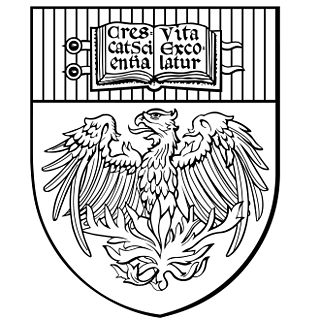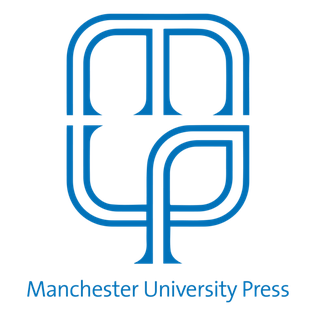
The Norns are deities in Norse mythology responsible for shaping the course of human destinies.

The University of Otago is a public research collegiate university based in Dunedin, Otago, New Zealand. Founded in 1869, Otago is New Zealand's oldest university and one of the oldest universities in Oceania.

Dunedin is the second-largest city in the South Island of New Zealand, and the principal city of the Otago region. Its name comes from Dùn Èideann, the Scottish Gaelic name for Edinburgh, the capital of Scotland. The city has a rich Māori, Scottish, and Chinese heritage.

The University of Chicago Press is the university press of the University of Chicago, a private research university in Chicago, Illinois. It is the largest and one of the oldest university presses in the United States. It publishes a wide range of academic titles, including The Chicago Manual of Style, numerous academic journals, and advanced monographs in the academic fields. The press is located just south of the Midway Plaisance on the University of Chicago campus.
Indiana University Press, also known as IU Press, is an academic publisher founded in 1950 at Indiana University that specializes in the humanities and social sciences. Its headquarters are located in Bloomington, Indiana. IU Press publishes approximately 100 new books annually, in addition to 38 academic journals, and maintains a current catalog comprising some 2,000 titles.
Longacre Press was a publisher based in Dunedin, New Zealand. The company was founded in 1995 by Barbara Larson, Paula Boock, and Lynsey Ferrari, three former workers at Dunedin's McIndoe Publishing. The company was originally located at Dowling Street, close to the city's Exchange Neighbourhood, but later moved to Moray Place in the city centre.

Manchester University Press is the university press of the University of Manchester, England and a publisher of academic books and journals. Manchester University Press has developed into an international publisher. It maintains its links with the University.
The Oamaru Mail is a weekly community newspaper published each Friday in Oamaru, New Zealand, by the Dunedin–based media company Allied Press Ltd that serves the North Otago area. The motto of the paper is "Your community, Your News".
Otago University Press is an academic publisher associated with the University of Otago. The press is located in Dunedin, New Zealand. The Otago University Press is the oldest academic publisher in New Zealand. The Otago University Press publishes non-fiction and poetry and is also the publisher of the literary journal Landfall.
Charles Hepworth Holland was a British geologist, Emeritus Fellow and former Professor of Geology and Mineralogy at Trinity College Dublin.
Dunedin East was a parliamentary electorate in the city of Dunedin in the Otago region of New Zealand from 1881 to 1890.
Dunedin and Suburbs South was a parliamentary electorate in the city of Dunedin in Otago, New Zealand from 1862 to 1866. From 1863 it was a multi-member electorate.
Rory Sweetman is a professional New Zealand historian. He teaches at the University of Otago in modern Irish history and has published widely on New Zealand's ethnic and religious past.
The Otago Witness was a prominent illustrated weekly newspaper in the early years of the European settlement of New Zealand, produced in Dunedin, the provincial capital of Otago. Published weekly, it existed from 1851 to 1932. The introduction of the Otago Daily Times, followed by other daily newspapers in its circulation area, led it to focus on serving a rural readership in the lower South Island, where poor road access prevented newspapers being delivered daily. It also provided an outlet for local fiction writers. It is notable as the first newspaper to use illustrations and photographs and was the first New Zealand newspaper to provide a correspondence column for children, which was known as "Dot's Little Folk". Together with the Auckland-based Weekly News and the Wellington-based New Zealand Free Lance it was one of the most significant illustrated weekly New Zealand newspapers in the 19th and early 20th centuries.
Alexander Hare McLintock was a New Zealand teacher, university lecturer, historian and artist. He edited and authored the three-volume Encyclopaedia of New Zealand, published in 1966, his final and perhaps his most remembered work.

Sue Wootton is a New Zealand writer, specialising in poetry and short fiction.

Peter John Olds was a New Zealand poet from Dunedin. He was regarded as being a significant contributor within New Zealand literary circles, in particular, having an influence with younger poets in the 1970s. Olds held the University of Otago Robert Burns Fellowship and was the inaugural winner of the Janet Frame Literary Award. During the 1970s he spent time in the community of Jerusalem with James K Baxter.
Jean Stella Lonie was a New Zealand poet and teacher. She published three volumes of poetry during her lifetime, with her poems often featuring her home and family life.

Atholl John Anderson is a New Zealand archaeologist who has worked extensively in New Zealand and the Pacific. His work is notable for its syntheses of history, biology, ethnography and archaeological evidence. He made a major contribution to the evidence given by the iwi (tribe) Ngāi Tahu to the Waitangi Tribunal.
The Dunedin Collective for Woman (DCW) was a feminist group active in Dunedin, New Zealand in the 1970s. Set up as an umbrella organisation for special interest groups and projects, its four foundational aims were equal pay, quality childcare, women's control of their own bodies, and an end to sex stereotyping.







